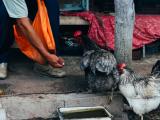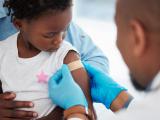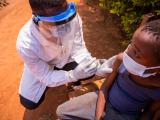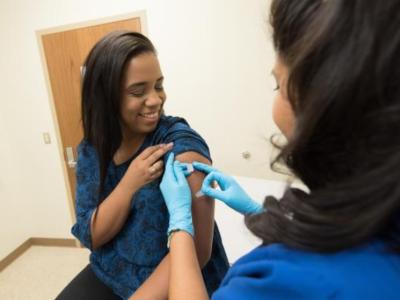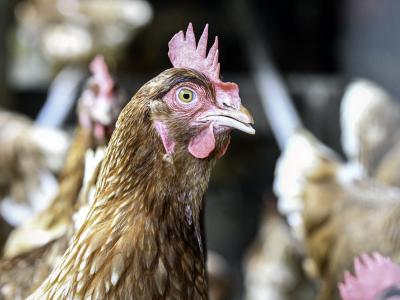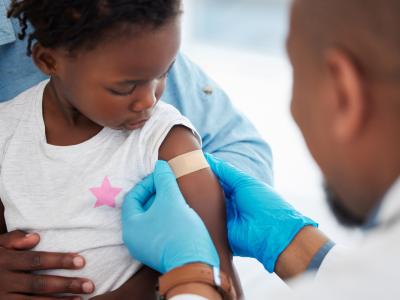Mar 1, 2013
FDA launches plan for bolstering safety of food imports
The US Food and Drug Administration (FDA) yesterday released its "International Food Safety Capacity-Building Plan" for bolstering food safety in countries that export food to the United States. The agency intends to improve food safety training abroad, enhance communication with foreign health officials, and explore developing a foreign inspection report equivalent to a domestic inspection report, according to the new plan. It fulfills one of the mandates of the Food Safety Modernization Act (FSMA) of 2011. The plan details four goals: (1) ensuring FDA food safety efficiency, (2) monitoring international food safety initiatives, (3) supporting the exchange of information between the FDA and foreign governments, and (4) enhancing training of foreign food manufacturers and auditors, with a push for universal lab-testing techniques. The plan "charts a direction for how FDA will prioritize its capacity-building efforts based on risk, and how the agency will work in partnership with counterpart authorities, industry, and other organizations in order to achieve lasting food safety results," according to the report. Michael Taylor, JD, FDA deputy commissioner of foods and veterinary medicine, said in a letter accompanying the report, "Capacity building is one tool in a larger toolbox FSMA has provided for FDA to hold imported foods to the same standards as domestic foods."
Feb 28 FDA report
FDA International Capacity Building Web site
Cambodia's prime minister orders coordinated actions to stem H5N1
The prime minister of Cambodia, Hun Sen, has issued a directive to police and agriculture and health leaders to take joint action to stop the spread of H5N1 avian flu in the country, Agence France-Presse (AFP) reported today. Cambodia has seen nine human cases of the infection, eight of them fatal, already this year, and 30 human cases and 27 deaths since 2005. Part of the new Cambodia directive is an order to disinfect all poultry farms and markets across the country as well as to monitor birds' health and stop illicit poultry transport across the country's borders. Cambodians have been told to wash their hands frequently, to not eat infected birds, and to keep children away from birds.
Mar 1 AFP article
Feb 26 CIDRAP News story on latest H5N1 death in Cambodia
Study: Single H5N1 mutation confers increased viral growth in mice
A single mutation in the H5N1 avian flu virus that affects the pH at which the hemagglutinin protein is activated also simultaneously reduces its capacity to infect ducks and enhances its capacity to grow in mice, according to a study yesterday in the Journal of Virology. Researchers from St. Jude Children's Hospital in Memphis studied a previously lab-mutated version of the influenza H5N1 virus called K58I that resists acid activation and loses its capacity to infect ducks. Because the upper airways of mammals are more acidic than infected tissues of birds, they hypothesized that the virus may be more infective in mammals. In fact, their study found that K58I grows 100-fold better than wild-type H5N1 in the nasal cavities of mice and is 50% more lethal. In addition, K58I did not kill any infected ducks, whereas wild-type H5N1 killed 66% of them. "A single mutation that eliminates H5N1 growth in ducks simultaneously enhances the capacity of H5N1 to grow in mice," said Charles J. Russell, PhD, one of the authors, in a press release from the American Society for Microbiology (ASM), which publishes the journal. "We conclude that enhanced resistance to acid inactivation helps adapt H5N1 influenza virus from an avian to a mammalian host." The press release also noted that both the National Institute of Allergy and Infectious Diseases and the St. Jude Institutional Biosafety Committee concluded that the study failed to meet the definition of dual-use research of concern (DURC), a title applied to studies that can be used for good or bad ends.
Feb 28 J Virol study
Feb 28 ASM press release
Feb 28 J Virol editorial on the study
New polio case in Pakistan as WHO moves to address attacks on health workers
A 2-year-old child in Pakistan has polio, the fourth case in the country this year, according to The News International today. The child is from the village of Salar Kaly, which is in Khyber Pakhtunkhwa province, home to two of the other polio victims. Pakistan is one of only three countries in which polio still has not been eradicated, along with Afghanistan and Nigeria. Efforts on the part of public health workers to vaccinate children in these countries have been thwarted by attacks supposedly backed by militant Muslim leaders who see vaccination programs as a conspiracy of Western medicine, Reuters reported today. Leaders of the World Health Organization (WHO) will meet with Islamic officials next week in Egypt to discuss how to stop the attacks. The WHO's aim is to eradicate polio globally by 2018, a goal the agency says is within reach if vaccination efforts can continue. Public health efforts have been able to cut the number of polio cases worldwide from 350,000 in 1988 to 225 in 2012.
Mar 1 News International article
Mar 1 Reuters article
Feb 26 CIDRAP News item on most recent attack
